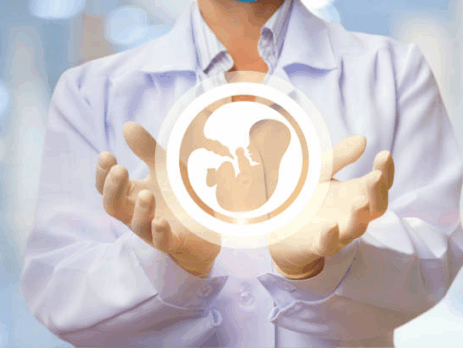What to Expect During IVF Treatment in San Diego

Understanding the IVF Process Step-by-Step
Initial Fertility Consultation
Your IVF journey at Southern California Fertility Center begins with a comprehensive consultation. During this session, your fertility history is reviewed, relevant medical records are evaluated, and diagnostic testing may be ordered. The purpose is to understand your unique reproductive health profile and recommend the best IVF treatment strategy.
Ovarian Stimulation Phase and Medications
Once treatment begins, the ovaries are stimulated using hormone injections to produce multiple eggs. Your fertility specialist will prescribe a personalized medication protocol and closely monitor your response to ensure optimal follicular growth while minimizing risks such as ovarian hyperstimulation.
Monitoring and Ultrasounds
During stimulation, frequent ultrasound scans and blood tests help track follicle development and hormone levels. These insights allow the fertility team to adjust your medications in real time to promote a successful egg retrieval outcome.
Egg Retrieval Day Procedure
When your follicles reach ideal maturity, a trigger shot is administered, and egg retrieval is scheduled approximately 36 hours later. The retrieval is performed under light sedation in our on-site surgical suite. It typically takes less than 30 minutes.
Fertilization and Embryo Development
Following retrieval, eggs are fertilized with sperm using conventional IVF or ICSI (Intracytoplasmic Sperm Injection). The resulting embryos are cultured in a highly controlled lab environment. Embryo development is monitored daily, and only the best-quality embryos are selected for transfer.
Embryo Transfer Process
The embryo transfer procedure is minimally invasive and does not require anesthesia. One or more embryos are placed into the uterus under ultrasound guidance. The procedure is brief and painless, often compared to a Pap smear.
The Two-Week Wait and Pregnancy Test
After the transfer, patients enter what is often the most emotionally challenging phase: the two-week wait. Hormonal support medications are continued, and a blood pregnancy test is scheduled approximately 10–14 days after transfer.
The entire process is supported with compassionate care and expert guidance from the team at Southern California Fertility Center.
IVF Timeline: How Long Does It Take from Start to Finish?
From Consult to Retrieval: Week-by-Week
Most IVF cycles take approximately 6–8 weeks from the first consultation to egg retrieval, depending on diagnostic timelines and individual response to medication.
Recovery Time After Retrieval
Post-retrieval, patients usually return to regular activity within 24–48 hours. Some bloating and cramping are normal and resolve quickly.
When to Expect Results
The earliest definitive pregnancy results are available about two weeks after embryo transfer via blood test. SCFC also offers early ultrasound confirmation when needed.
Common Side Effects and Recovery After IVF
Emotional Effects and Hormonal Changes
Hormonal medications used during IVF may lead to mood swings, irritability, or emotional fatigue. SCFC encourages emotional support through counseling or fertility-focused support groups.
Physical Symptoms Post-Retrieval and Transfer
Some patients experience minor bloating, cramping, or spotting. These symptoms are usually short-lived and manageable with rest and hydration.
When to Call Your Care Team
Call your care team immediately if you experience severe pain, heavy bleeding, fever, or signs of ovarian hyperstimulation syndrome (OHSS). SCFC provides around-the-clock access to medical support.
Costs Involved at Each Stage of IVF
Medication Costs
Medications play a critical role in ovarian stimulation and luteal support. SCFC provides guidance on pharmacy options and how to navigate prescription planning.
Embryology and Lab Costs
Lab-related costs include fertilization, embryo monitoring, freezing, and storage. These services are performed in SCFC’s state-of-the-art embryology lab for maximum safety and success.
Optional Add-Ons (e.g., PGT, ICSI)
Some patients may benefit from advanced techniques like Preimplantation Genetic Testing (PGT) or ICSI. These are personalized based on diagnosis and clinical history.
How Southern California Fertility Center Supports You Through the Journey
Dedicated Care Coordinator
Every patient at SCFC is assigned a care coordinator who ensures you understand your timeline, appointments, and medication instructions. They serve as your personal guide throughout the process.
Mental Health & Emotional Wellness Programs
IVF can be emotionally intense. SCFC partners with reproductive counselors and therapists to offer emotional support, coping strategies, and mental wellness programs.
Access to 24/7 Support
Our care doesn’t end after office hours. Patients receive emergency contact access to ensure they feel supported every step of the way.

How to Prepare for IVF Emotionally and Physically
Diet and Exercise Tips
A balanced diet rich in antioxidants, folic acid, and omega-3s is recommended. Moderate, low-impact exercise such as walking or yoga helps maintain emotional equilibrium.
IVF Mindfulness and Stress-Reduction Strategies
Mindfulness techniques such as guided meditation, journaling, and acupuncture can lower stress levels and support hormone regulation. SCFC can recommend licensed providers.
Partner or Support Group Roles
Partners play an important role by offering physical assistance with injections, attending appointments, and providing emotional support. Peer-led support groups are also invaluable during this time.
IVF Success Factors and What You Can Control
Age, Embryo Quality, Uterine Health
While age remains a major success determinant, other factors such as embryo grading and uterine receptivity also impact outcome. SCFC’s tailored protocols maximize each patient’s unique chances.
Managing Expectations
It’s important to understand that not every IVF cycle results in pregnancy. Patients may need more than one cycle, and SCFC helps prepare you mentally and medically for all outcomes.
Choosing the Right Clinic
The success of your IVF journey depends significantly on the clinic you choose. SCFC combines compassionate care with high success rates and cutting-edge lab facilities.
IVF Journey:
| IVF Stage | What Happens | Patient Involvement |
|---|---|---|
| Initial Consultation | Medical history, diagnostics, planning | Attend consult, bring records |
| Ovarian Stimulation | Hormone injections to mature eggs | Daily self-injections, appointments |
| Monitoring | Ultrasounds and blood tests | Attend monitoring sessions |
| Egg Retrieval | Outpatient procedure under sedation | Rest and recovery post-procedure |
| Fertilization | IVF/ICSI performed in lab | Embryo development monitored |
| Embryo Transfer | Transfer of embryo into uterus | Minimal physical prep needed |
| Two-Week Wait | Wait for results, continue medications | Manage emotional stress |
| Pregnancy Test | Blood test to confirm pregnancy | Visit clinic or lab |
Conclusion: Let SCFC Guide You Every Step of the Way
Starting IVF is a monumental decision, but you don’t have to face it alone. Southern California Fertility Center combines clinical excellence with deep compassion, offering a personalized experience tailored to your goals, biology, and emotional well-being.
Schedule your consultation today and take the first step toward building your family with confidence and support from one of San Diego’s leading fertility centers.
FAQs About IVF Treatment in San Diego
Yes, most patients are able to maintain their work schedules during the IVF cycle, though flexibility is helpful. SCFC recommends discussing with your employer as you may need time off for appointments or recovery after egg retrieval.
Most parts of IVF are minimally uncomfortable. Hormonal injections may cause mild irritation or bloating. Egg retrieval is done under sedation and embryo transfer is generally painless.
If a cycle is unsuccessful, SCFC will conduct a follow-up consultation to assess the reasons and recommend adjustments. Options may include a second cycle, additional testing, or a different stimulation protocol. Emotional support is also available to help patients process disappointment.
Yes, SCFC follows ASRM guidelines but gives patients the autonomy to decide within medically safe limits. Your physician will help you understand the risks and benefits of single vs. multiple embryo transfers.
Current evidence supports the long-term safety of IVF for both patients and babies. SCFC adheres to the latest clinical protocols and ethical guidelines for reproductive health.



